Last week, I attended the 2nd International Children’s Advisory Network (iCAN) Research and Advocacy Summit, which took place in Barcelona. This innovative event brought together around 150 youth advisors, team leaders, parents and scientific partners from six countries on two continents.
The development of
iCAN began in 2013, when the first Kids and Families Impacting Disease through Science (KIDS) group was launched in
Connecticut. KIDS was modelled on similar young person’s advisory groups (YPAGs) in Europe and Canada.
The purpose of the
iCAN summit is to provide a structured setting for youth members, families and researchers to come together and share their experiences, learn from one another, and engage with world leaders in research and innovation.
Generation R
I attended the iCAN summit with colleagues from
GenerationR, the national YPAG made up of six local groups across the United Kingdom (UK) – these include Liverpool, Birmingham, London, Bristol, Nottingham and a mental health group in London. Groups are funded by the National Institute for Health Research (NIHR) and other National Health Service (NHS) organisations.
GenerationR support the design and delivery of paediatric research in the UK. GenerationR groups are all made up of 10 to 15 members who are aged between 8 and 25 years. The groups meet every six weeks either at weekends, in the evenings, or during school holidays. They also come together for a national meeting once a year.
Their views feed into the design and delivery of research in children and young people.
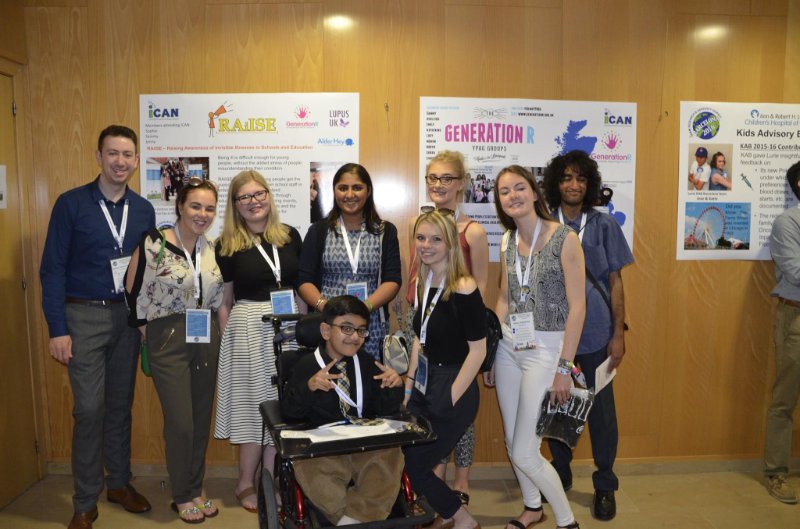
Sharing and learning from international teams
We were able to learn from
YPAGs around the world, through a series of poster presentations and interactive sessions. Each team highlighted projects they have been involved with over the last year, as well as informing each other about next steps for their groups. This was followed by a tour of
Sant Joan de Déu Hospital, who were kindly co-hosting the summit in collaboration with iCAN. It was fascinating to visit different parts of the hospital, from the outpatient department to the pathology and clinical research facilities. This nicely led into a serious of workshops. The young people rotated around four workshops, of which the pet therapy session was the most popular! The remaining delegates took part in an interactive session about clinical research design. We identified some ethical and moral challenges about children’s research, and designed potential research questions to address patient and parent priorities.
Collaborating with industry, to ensure the patient voice is heard loud and clear
It feels like we’ve come a long way over the last five to ten years, with regards to making research person-centred. However, it sometimes feels that industry lags behind the health and social care landscape, and all too often, I sense the uncertainty and uneasiness of certain individuals about involving patients and the public in industry-funded research. During the summit, youth members interviewed individuals from the
European Medicines Agency (EMA),
Food and Drug Administration (FDA) and
Health Canada. Each agency highlighted how they are increasingly involving patients in regulatory approval decisions, with the EMA involving over 700 patients in their work during 2015. They also called for individuals to express interest in supporting regulatory agencies to better address the needs of patients, by getting involved in the decision-making process.
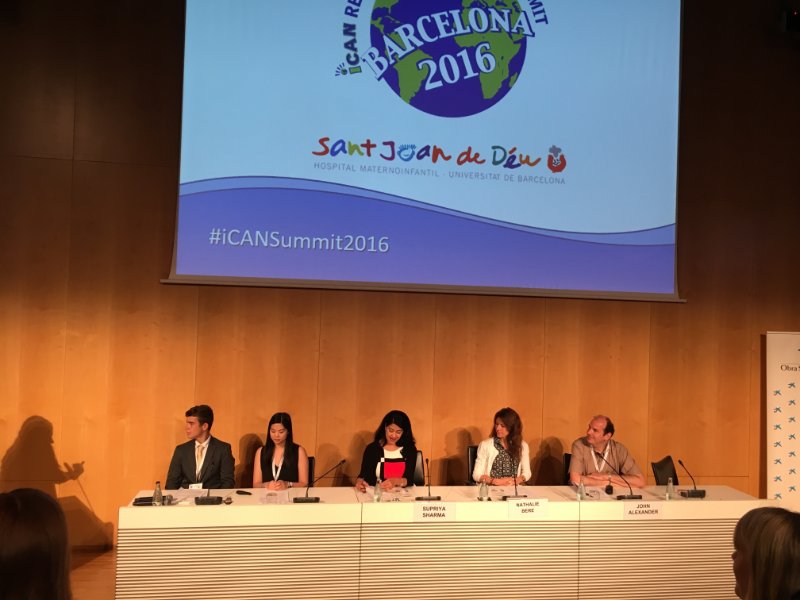
Healthy living, with the child at the centre
We spent a morning at
Fundació Alícia, in Món St. Benet, where we learned about the benefits of a Mediterranean diet. Children who were participating in the summit took part in a series of practical workshops aimed at improving dietary habits in children and young people. They were tasked with designing a healthy meal using Mediterranean vegetables, and the products were most impressive – I think we have some future chefs in the making! Using skills-based workshops with children and young people is a great way for them to implement theory into practice, to benefit what they do in the future.
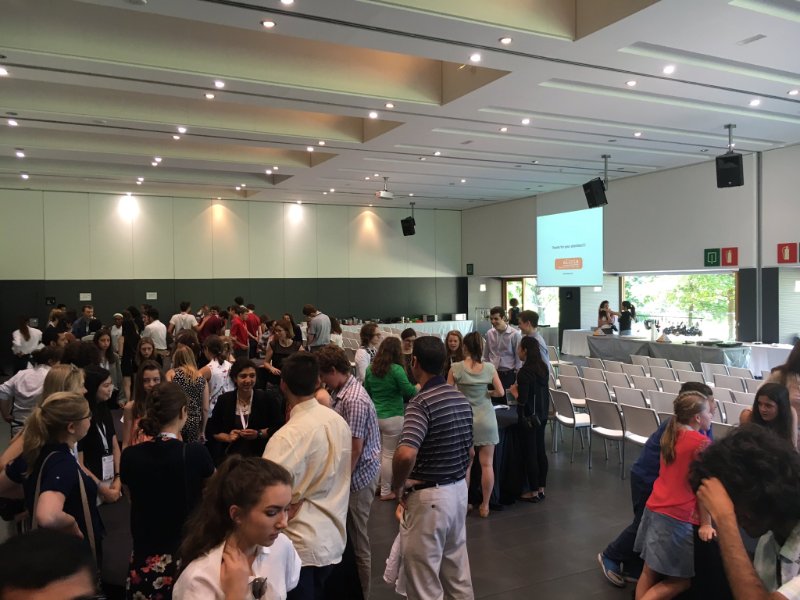
Transition to adult care can be a period of uncertainty for young people and their families
On the final day of the iCAN summit, colleagues from
Hospital Sant Joan de Déu (Barcelona) and
Children’s Mercy Hospital (Kansas City) focused on the challenges young people and their families face when transitioning between paediatric and adult care services, whether that be for clinical care or research involvement. These two centres are following the Child Life model, supporting young people to cope with medical procedures and surgeries. The need for timely, developmentally-appropriate transitional care is clearly needed. However, there is disparity in the way in which this is approached, across the globe, and between centres in individual countries. Each of us goes through some form of transition in our lives – moving schools, going to university, starting a family, entering retirement. In this context, we can appreciate the physical and psychological effects of venturing into the ‘unknown’, and so the process of moving to adult care is no different. What I think we currently lack is the development of the appropriate self-management skills in young people from an early age, so that they feel confident and competent to manage their own health, without appropriate support from parents, carers, health professionals and teachers.
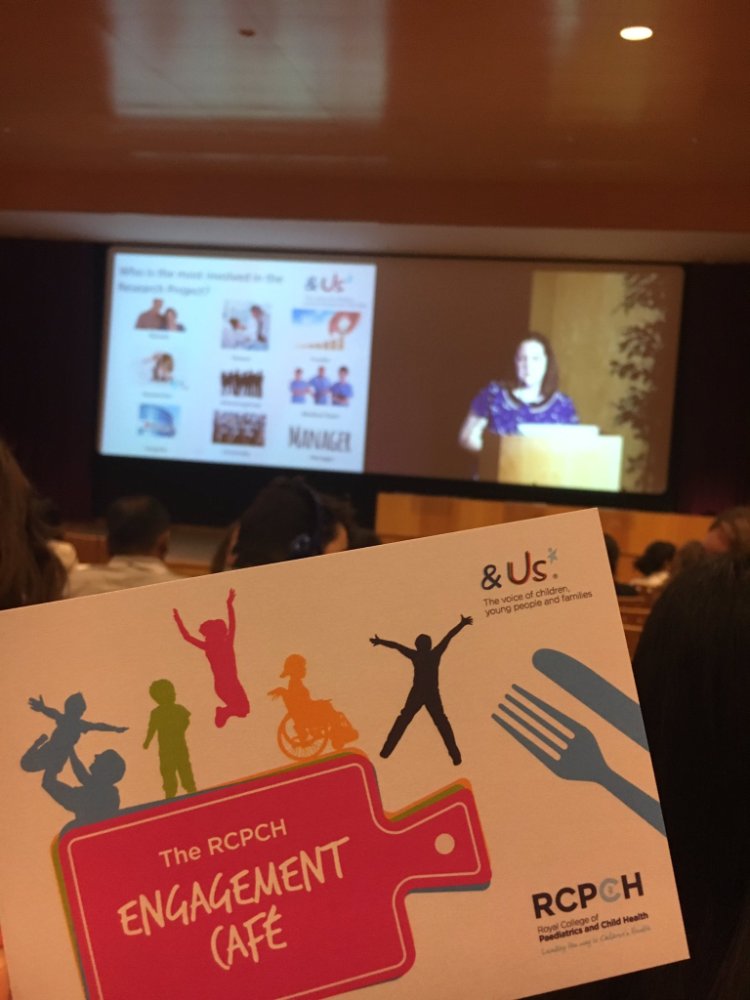
Research – It’s about me
Emma Sparrow and Lindsey Hunter from the
Royal College of Paediatrics and Child Health in the UK then introduced their new children and young people’s research charter (RESEARCH), a bold and impressive step forward to integrate research into normal clinical care, keeping young people and their families at the centre of all that the college does.
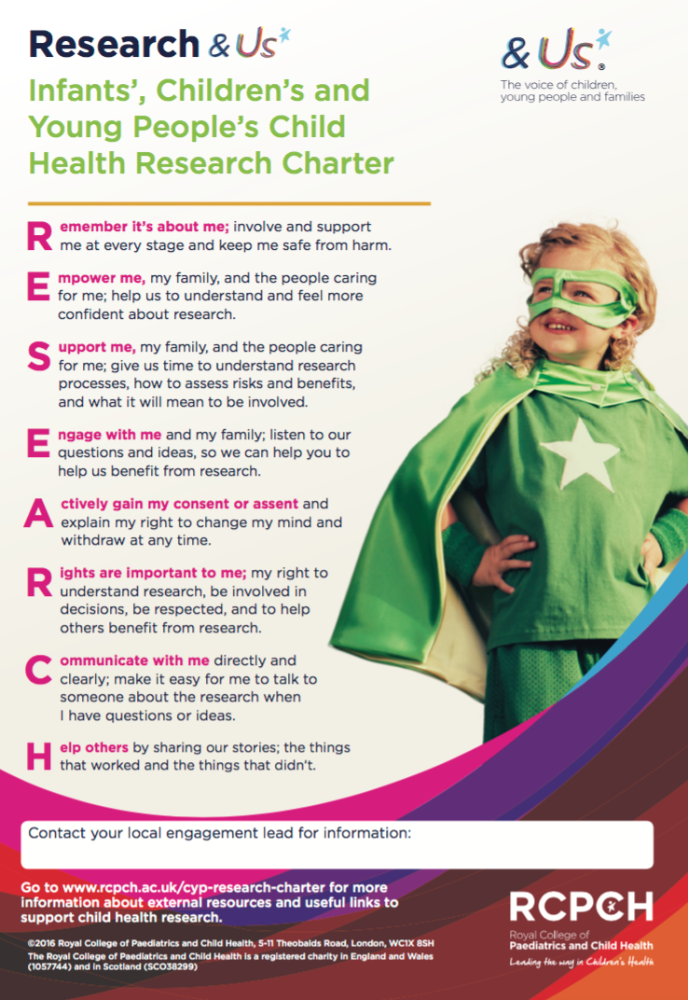
When discussing research, ethical dilemmas can sometimes act as a barrier for effective involvement of young people. Kate Harvey from
Nuffield Council on Bioethics facilitated an interesting bioethics workshop, to help parents and young people to understand the complexity of decisions regarding medical practice and research. Open and transparent communication between researchers, health professionals, young people and their families was a high priority, enabling all the necessary information to be available for young people and their families to understand in an easy manner.
Sadly, extensive patient information sheets are making research unappealing for patients, and we discussed how we could use technology to develop multimedia tools to better engage those who will ultimately be taking part in research. In the UK, I am involved in the
TRECA study to address this question, which could revolutionise the way that we inform people about research opportunities. Jan Geissler, Director of
EUPATI, also hosted a toolbox game, which certainly got everyone’s competitive spirit into gear! EUPATI provides scientifically reliable and comprehensive information to patients on medicines research and development. This is a great resource to educate and empower patients. Through the steps we’ve taken, and continue to invest time and energy into, I hope that we move to a world in which pharmacological treatments, non-pharmacological treatments and research are integrated as part of routine clinical care.
Aside from learning about some fantastic activities taking place around the globe, the iCAN summit was an invaluable opportunity to bring together various stakeholders to network, share experiences, and establish new working relationships to make a difference to the lives of people living with health conditions.




 When discussing research, ethical dilemmas can sometimes act as a barrier for effective involvement of young people. Kate Harvey from Nuffield Council on Bioethics facilitated an interesting bioethics workshop, to help parents and young people to understand the complexity of decisions regarding medical practice and research. Open and transparent communication between researchers, health professionals, young people and their families was a high priority, enabling all the necessary information to be available for young people and their families to understand in an easy manner.
Sadly, extensive patient information sheets are making research unappealing for patients, and we discussed how we could use technology to develop multimedia tools to better engage those who will ultimately be taking part in research. In the UK, I am involved in the TRECA study to address this question, which could revolutionise the way that we inform people about research opportunities. Jan Geissler, Director of EUPATI, also hosted a toolbox game, which certainly got everyone’s competitive spirit into gear! EUPATI provides scientifically reliable and comprehensive information to patients on medicines research and development. This is a great resource to educate and empower patients. Through the steps we’ve taken, and continue to invest time and energy into, I hope that we move to a world in which pharmacological treatments, non-pharmacological treatments and research are integrated as part of routine clinical care.
Aside from learning about some fantastic activities taking place around the globe, the iCAN summit was an invaluable opportunity to bring together various stakeholders to network, share experiences, and establish new working relationships to make a difference to the lives of people living with health conditions.
When discussing research, ethical dilemmas can sometimes act as a barrier for effective involvement of young people. Kate Harvey from Nuffield Council on Bioethics facilitated an interesting bioethics workshop, to help parents and young people to understand the complexity of decisions regarding medical practice and research. Open and transparent communication between researchers, health professionals, young people and their families was a high priority, enabling all the necessary information to be available for young people and their families to understand in an easy manner.
Sadly, extensive patient information sheets are making research unappealing for patients, and we discussed how we could use technology to develop multimedia tools to better engage those who will ultimately be taking part in research. In the UK, I am involved in the TRECA study to address this question, which could revolutionise the way that we inform people about research opportunities. Jan Geissler, Director of EUPATI, also hosted a toolbox game, which certainly got everyone’s competitive spirit into gear! EUPATI provides scientifically reliable and comprehensive information to patients on medicines research and development. This is a great resource to educate and empower patients. Through the steps we’ve taken, and continue to invest time and energy into, I hope that we move to a world in which pharmacological treatments, non-pharmacological treatments and research are integrated as part of routine clinical care.
Aside from learning about some fantastic activities taking place around the globe, the iCAN summit was an invaluable opportunity to bring together various stakeholders to network, share experiences, and establish new working relationships to make a difference to the lives of people living with health conditions.
